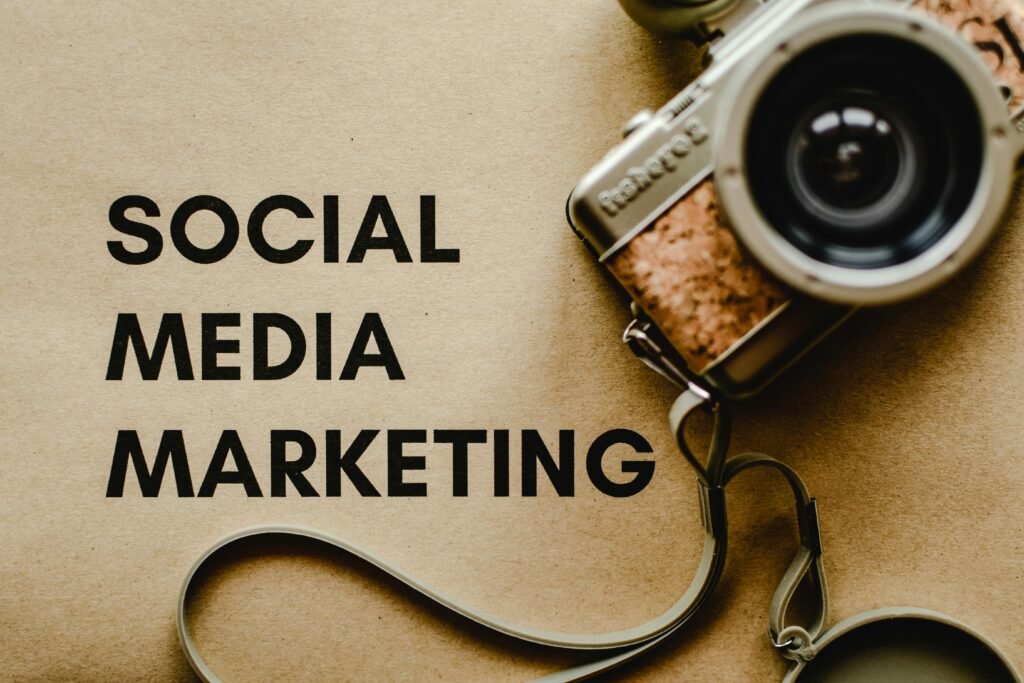
social media marketing is one of the most powerful tools for building relationships, driving engagement, and growing a brand. While many businesses and creators turn to paid advertising, there’s a more sustainable and budget friendly approach, organic social media marketing
Smm focuses on building an authentic community using free and paid features of social media platforms. This blog post will help you understand what organic SMM is, why it matters, and how to get started.
Organic Social Media Marketing
Organic social media marketing means using non paid methods to attract, engage, and grow your audience on platforms like Instagram, Facebook, LinkedIn, and TikTok.
When you post a story, reply to a comment, or use a hashtag to boost your visibility — that’s organic marketing.
Key Features of Organic SMM
- No ad spend required
- Focus on community and engagement
- Relies on consistent content and interaction
- Builds long term trust and brand loyalty
Unlike paid campaigns, which give quick exposure, organic efforts help create meaningful relationships with your audience.
Difference Between Organic and Paid Social Media
Let’s quickly compare the two approaches:
| Features | Organic SMM | Paid SMM |
| Cost | Free | Requires a budget |
| Speed of result | Gradually | Fast |
| Focus | Engagement and trust | Reach and conversion |
| Lifespan of strategy | Long term | Short term[ campaign based] |
| Ideal for | Personal brands, startups and educators | E commerce, product launching and events |
Both can be effective when used together, but starting organically helps you build a strong foundation first.
Why Organic Social Media Still Matters in 2025
You might think with all the algorithm changes and pay-to-play features, organic reach is dead. But that’s not true. Here’s why organic SMM still works:
- People Trust Real Interactions: Users can tell the difference between authentic content and sponsored posts. When you engage with followers and share your real story, you become more relatable and trustworthy.
- It’s Budget Friendly: For startups, freelancers, and small creators, paying for ads every month isn’t always possible. Organic growth costs time and effort not money.
- Builds Loyal Communities: Followers gained organically are more likely to stay long-term, interact with your content, and even recommend your page to others.
- Supports Other Marketing Channels: An active organic presence supports your SEO, email list building, and even paid campaigns. A consistent presence builds brand recognition.
Top Social Platforms for Organic Growth
Let’s break down how each platform supports organic strategies in different ways:

- Instagram: Great for visual content and storytelling.
- Use Reels, Stories, Carousel Posts, and Hashtags.
- Engage by replying to DMs and comments.
- Facebook: Ideal for building communities through Groups and long-form content.
- Organic reach is stronger with Live videos, Events, and Posts shared in Groups.
- LinkedIn: Best for personal branding and professional visibility.
- Sharing insights, stories, or behind-the-scenes content increases connection and reach.
- TikTok: Perfect for fast growth through trends and original content.
- Organic virality is possible with sound use, duets, and hashtag challenges.
- YouTube Shorts: Growing quickly in popularity.
- Great for educational or inspirational short videos.
Tip: Don’t try to be everywhere at once. Start with 1-2 platforms where your audience hangs out the most.
The Foundation of Successful Organic SMM
Success with organic SMM doesn’t happen by accident. It takes strategy and consistency. Here are the building block
Know Your Audience
Start by answering:
- Who am I talking to?
- What problems do they face?
- What content do they enjoy?
Use audience research tools like:
- Instagram Insights
- Facebook Audience Manager
- Google Analytics
Create a Content Plan
Don’t post randomly. Plan your content around:
- Themes (e.g., Tips, Behind-the-Scenes, Testimonials)
- Content types (Reels, Infographics, Stories)
- Frequency (e.g., 3–5 posts per week)
Engage Daily
Reply to every comment. Like your followers’ posts. Share user-generated content. Engagement is not optional, it’s what drives organic growth. Conversations → Connections → Conversions.
Track Performance
Use each platform’s built-in analytics to track:
- Reach
- Engagement rate
- Follower growth
- Save/share metrics
Use these insights to improve your content and posting strategy.
Benefits of Social Media for Digital Marketers
Whether you’re a beginner or aspiring digital marketing expert, organic SMM offers many career-building advantages:
- Portfolio Growth: You can showcase your skills without ad budgets.
- Real Results: Prove your ability to grow reach and engagement organically.
- Job-Ready Experience: Managing your own brand gives hands-on practice.
- Freelance Opportunities: Small businesses are always looking for affordable organic strategies.
Common Mistakes to Avoid in Organic SMM
This mistakes might seem non-noticeable but they can really affect the outcome of your posts. Somethings like:
- Posting inconsistently
- Ignoring your audience’s feedback
- Only promoting, never educating or entertaining
- Not optimizing profiles (bio, CTA, highlights)
- Using generic visuals or content
My Personal Thoughts On Organic SMM
Start by:
- Choosing 1–2 platforms
- Posting 3–5 times weekly
- Engaging with others in your niche
- Tracking your results weekly
Remember: People follow people, not perfect brands. Be consistent, authentic, and helpful.





